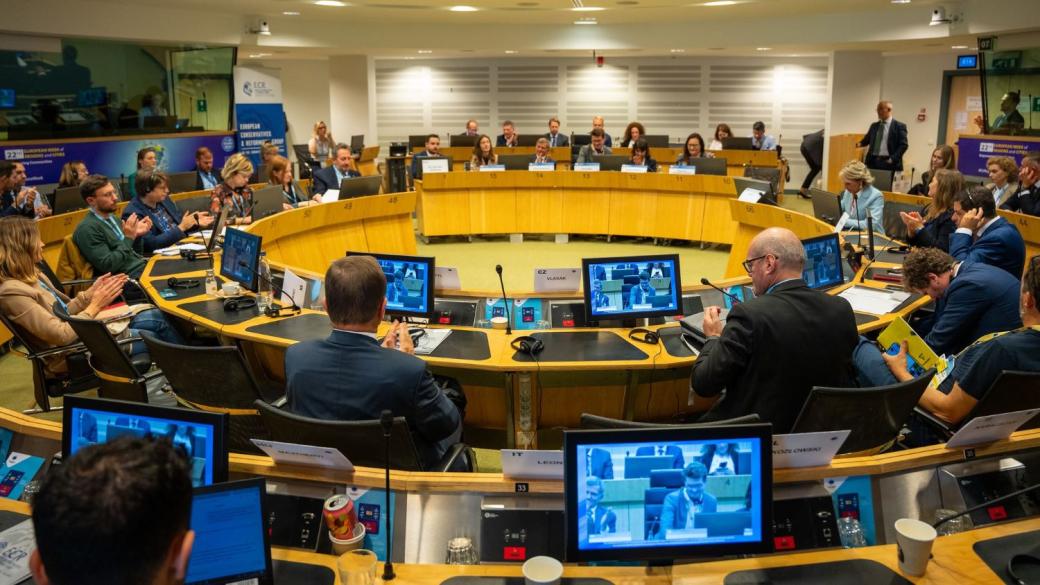New report shines the light on the challenges of local and regional Europe
The highlights were presented in the 2024 State of Regions and Cities in the European Union report, which also marks the 30th anniversary of the European Committee of the Regions

© ECONOMIC.BG / Flick/European Week of Regions and Cities
Local and regional governments enjoy the highest rate of trust among Europeans. While the more robust popularity of these authorities has long been established as a phenomenon, the 2024 State of EU Regions and Cities report, published by the European Committee of the Regions (CoR), claims that the level of trust is the highest it’s ever been.
Local and regional authorities enjoy the support of 60% of EU residents. It’s strong credentials like these that give confidence to the CoR to raise its voice and demand a more assertive participation and responsibility in the decision-making process of Cohesion Policy, including funding.
The report, released yesterday as a companion piece to the 22nd Week of Regions and Cities event in Brussels, also marks the 30th anniversary of the Committee of the Regions.
Other revelations from the report
The 2024 State of EU Regions and Cities report makes a strong case for a union based on a multi-level governance, not just because of the more implied democratic participation that this would entail but also because it could make the EU more comprehensible to the average European.
Improved understanding matters when one considers some of the facts highlighted in the document.
For instance, out of every 10 euros spent on environmental policies, 8 are spent locally. Nevertheless, it’s regions and cities that do and will have to bear the brunt of future climate-related calamities, such as heatwaves, floods, droughts and wildfires. Estimations show that until the middle of the century, every year, some 120,000 Europeans will lose their lives due to the effects of heatwaves alone.
In turn, the above can have effects on public health. That is also combined with the reality that 70% of the European population experiences seasonal water stress. These facts show that cities and regions are right to be asking for more targeted programs on social and territorial vulnerabilities.
No place, no person left behind
Europe is already in the process of transforming its industries, transport and energy systems to operate through more sustainable solutions fit for the future. However, this is still not uniform and synchronized in a way that would move the entire bloc as a single unit into a greener future that benefits all not just in terms of aesthetics and health but also in terms of economic well-being.
Consider, for example, that one in four Europeans live in rural areas, which at the same time represent 75% of the union’s territory. Green transition may be easier to implement in bigger cities, but it is just as important to carry out in the countryside. That’s why, the CoR report calls for place-based solutions and stronger decentralization since the diversity of the continent cannot be effectively managed via one-size-fits-all programs.
There needs to be a new perspective to rural regions and smaller communities since these represent reservoirs of untapped potential in terms of economic development and energy transition, apart from their traditional agriculture-based productivity.
This is where Cohesion Policy can play a more targeted role, such as the one exemplified by the new financial instrument called the Just Transition Fund (JTF). Its aim is to mitigate the asymmetry in development widened by the necessitated transformation of carbon-based regional economies seeking to move away from fossil fuel dependency while keeping residents employed, healthy and thriving.
The Report has the ambition to act as a foresight guide for the new EU institutions at the beginning of the new legislative term and budgetary debates.
Co-Funded by the European Union. Views and opinions expressed are however those of the author(s) only and do not necessarily reflect those of the European Union or the Managing Authority. Neither the European Union nor the Managing Authority can be held responsible for them.


 Tzvetozar Vincent Iolov
Tzvetozar Vincent Iolov 


